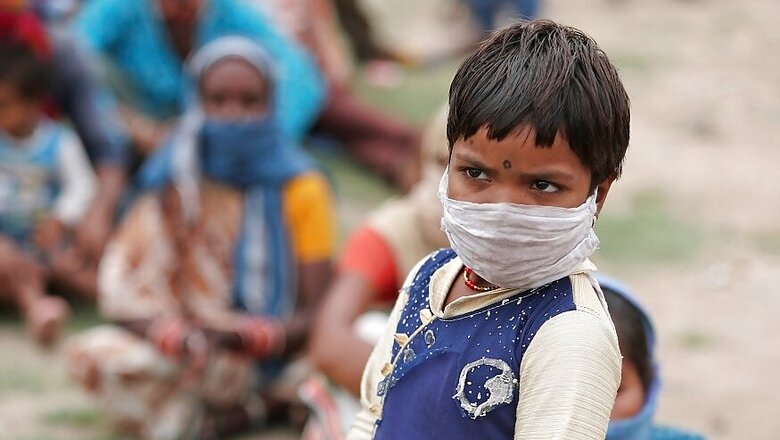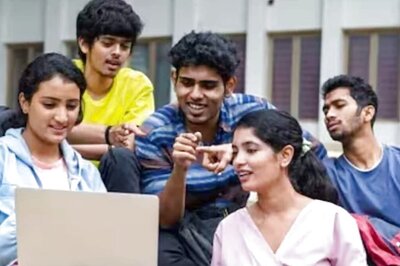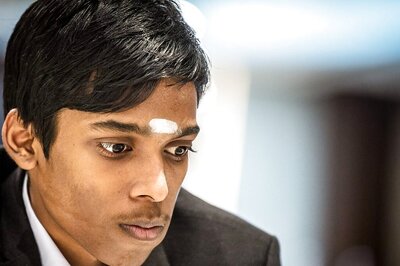
views
An estimated 120 million children living in South Asian countries, including India, could slip into poverty within the next six months due to the COVID-19 crisis, taking the total number of such kids in the region to 360 million, according to a new UNICEF report.
The report- Lives Upended- How COVID-19 threatens the futures of 600 million South Asian Children - covers eight South Asian countries namely Afghanistan, Pakistan, India, Nepal, Bhutan, Bangladesh, the Maldives and Sri Lanka.
It says that an estimated 240 million children already live in "multi-dimensional" poverty- including factors such as poor health, lack of education, poor sanitation and poor quality of work – in these countries.
An additional 120 million children could be pushed into poverty due to the COVID crisis, taking the total number to 360 million, it says.
The reports also flags the negative impact of the COVID-related disruption to vaccination, nutrition and other vital health services.
Quoting research by the Johns Hopkins Bloomberg School of Public Health, it said, "In the worst-case scenario, South Asia could see the additional deaths of as many as 881,000 children aged 5 or under and that of 36,000 mothers over the next twelve months. The bulk of these deaths would occur in India and Pakistan, although Bangladesh and Afghanistan could also see significant levels of additional mortality."
UNICEF India Representative Yasmin Haque said there is a need to get core essential services going as soon as possible.
"It is really about as fast as possible we can boost the core essential services for children. Malnutrition is already an existing problem in India and we have seen a lot of energy going into Poshan Abhiyan so we need to get back to that energy level. We need to look how anganwadi centres will function in a COVID era,” she told PTI.
She further said that additional budget and spending will be needed to make up for the days lost.
"It is going to need an acceleration not just in health but also in panchayat and sarpanch level," she said.
The report pointed out that India and Nepal, among others, face a particular problem: hundreds of schools being designated as quarantine centres.
"Communities will need to be reassured that these schools have been safely disinfected before children are allowed back to class," it said. Haque said children dropping out is also a concern.
"The children have been away from learning for a number of months and we know some of the coping mechanisms in very poor families have been to help the children with economic activities whether it is in household chores or expecting them to go out to work in agriculture sector. Another issue is child marriage so it is very important to keep our focus on when schools reopen children enrol back," she said.
Raising concern over the reverse migration in view of the lockdown, the report said the devastating impact on children was apparent in many parts of the region.
"It was perhaps most visible in the huge movement of migrant workers and their families heading back to their homes in rural India," the report said.
“The journey for these children was arduous enough. And many of them have continued to suffer from abuse, uncertainty, stigma and discrimination even after they reached home," said Haque.
The report said that an even more troubling aspect of the pandemic has been the blaming of ethnic or religious communities for starting or fuelling the spread of COVID-19.
Hate speech of this kind has surfaced in different countries, including Nepal, India, Sri Lanka and Afghanistan, the report said.
“We need the online and offline space to counter this false information,” said Layla Saad, UNICEF Regional Adviser for Communication for Development.
In India, one focus of concern has been the large number of child offenders held in detention and care centres prior to trial proceedings, the report said.
"An appeal by UNICEF to the Supreme Court led to an order for their release, and work is now underway to identify suitable family-based alternatives. By mid-May, more than 1,500 children had been placed in alternative care arrangements," it said.
According to the report, immunization, nutrition and other vital health services have been severely disrupted, potentially threatening the lives of up to 4,59,000 children and mothers over the next six months.
"In India, school closures have impacted 247 million children enrolled in elementary and secondary education and 28 million children who were attending pre-school education in anganwadi centres. This is in addition to the more than 6 million girls and boys who were already out of school prior to the COVID-19 crisis," it said.
"Schools should reopen as soon as possible provided adequate handwashing and other physical distancing precautions are in place," the report said.
The report also noted that life-saving vaccination campaigns against measles, polio and other diseases must resume, as should work to help the estimated 7.7 million children who suffer from severe wasting.
The report said India has made steady progress in newborn mortality reduction in the last five years before COVID-19, reducing the NMR from 26 in 2014 to 23 in 2017, saving about 75,000 newborn lives each year (source Sample Registration Survey).
"There is a danger of losing some of these gains made due to the impact of COVID -19 on health systems. Extra efforts will be needed in districts that are in the states with low social development indices," it said.



















Comments
0 comment